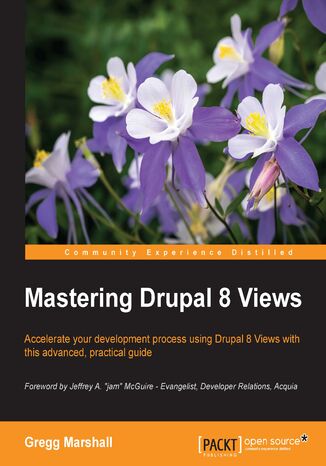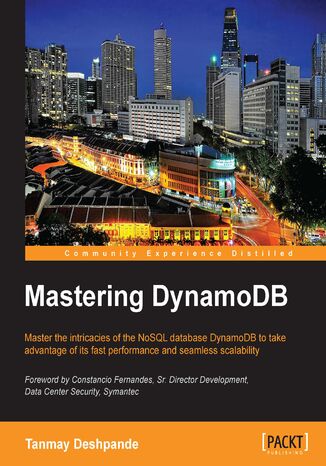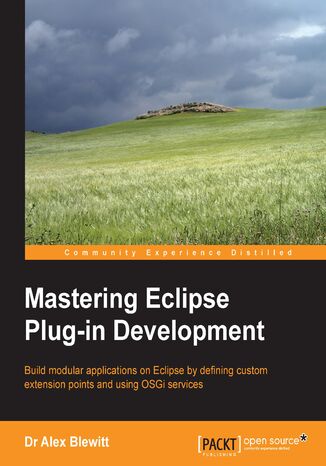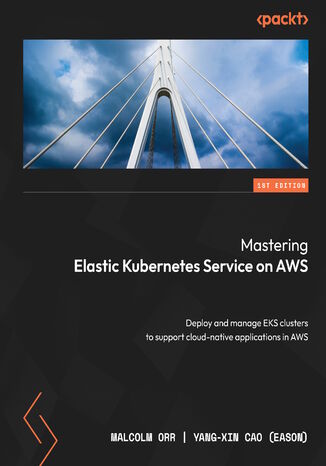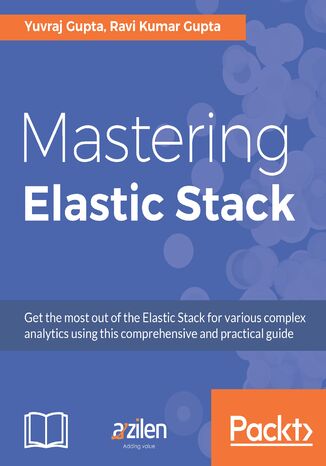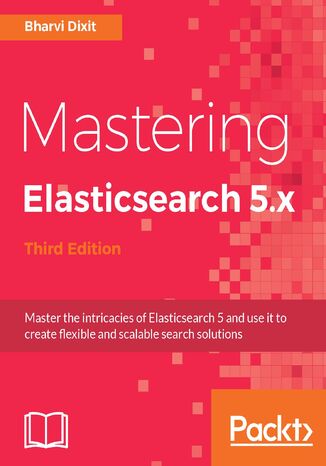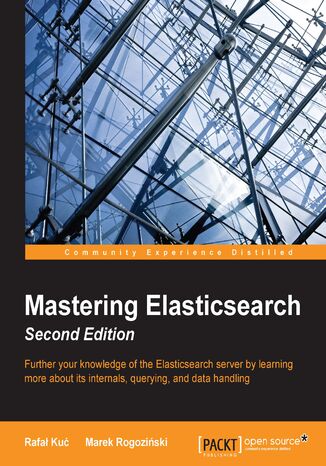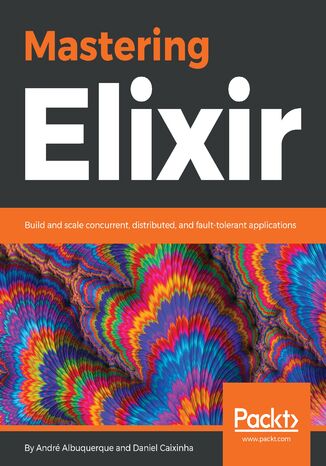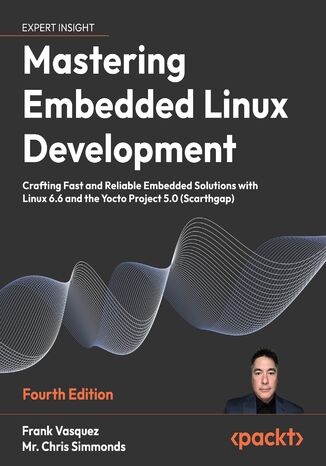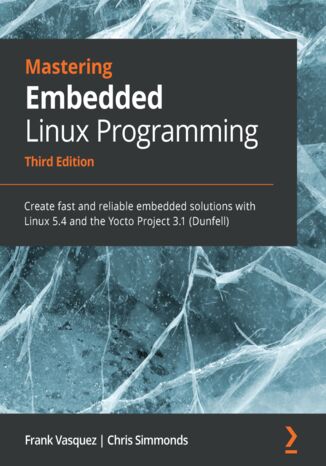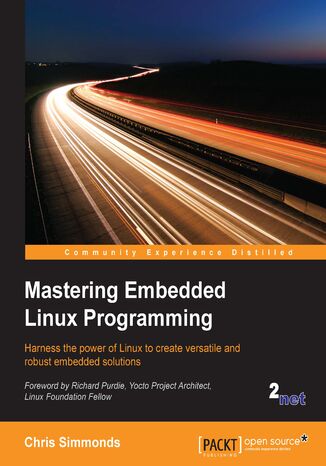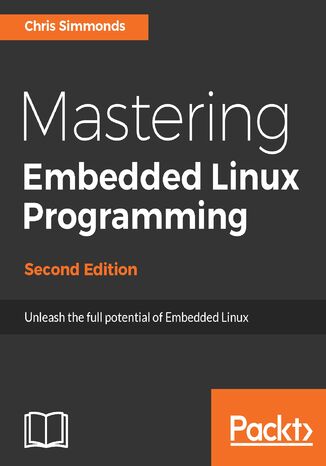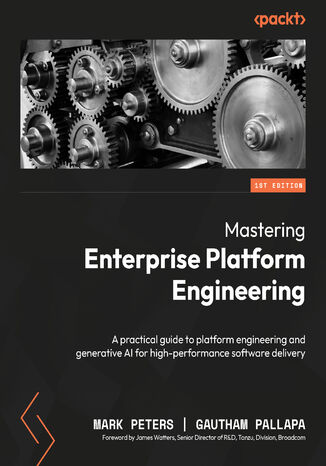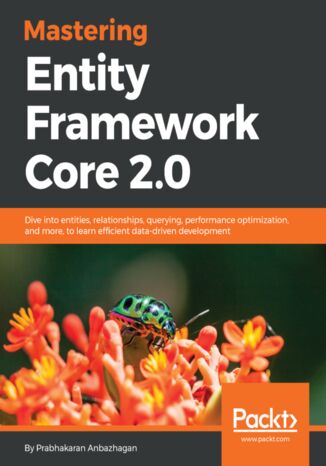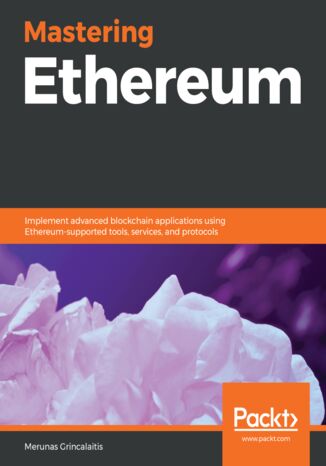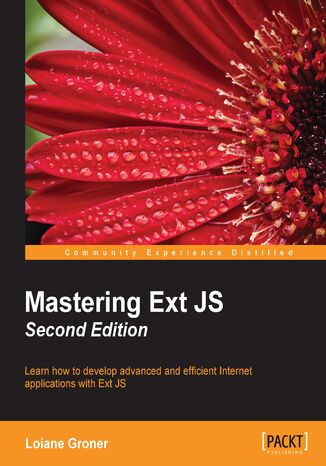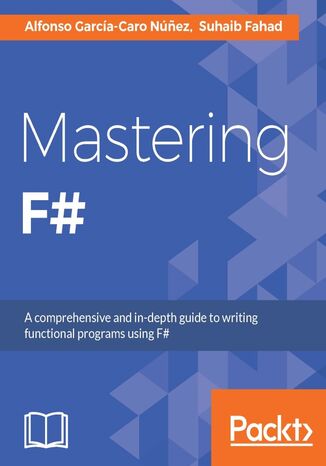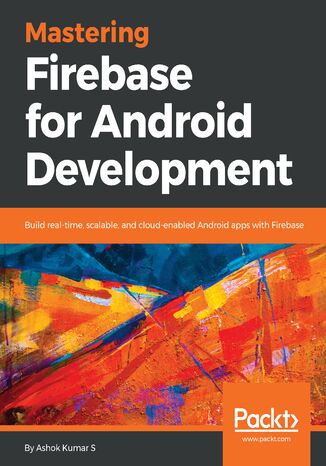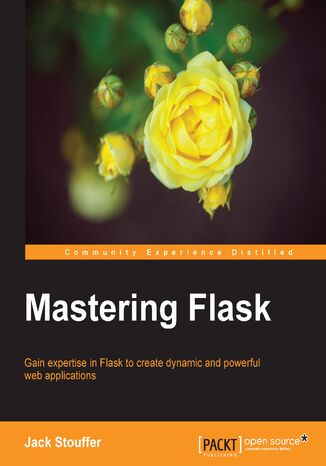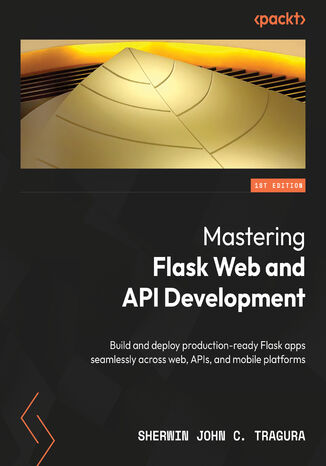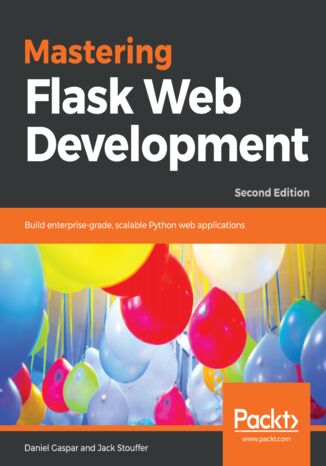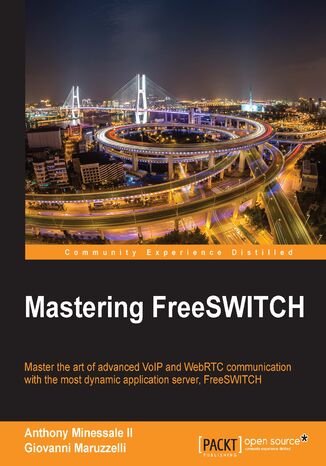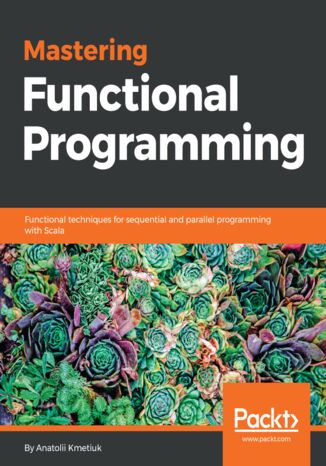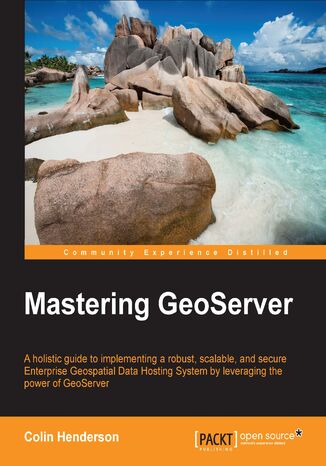Kategorie
Ebooki
-
Biznes i ekonomia
- Bitcoin
- Bizneswoman
- Coaching
- Controlling
- E-biznes
- Ekonomia
- Finanse
- Giełda i inwestycje
- Kompetencje osobiste
- Komputer w biurze
- Komunikacja i negocjacje
- Mała firma
- Marketing
- Motywacja
- Multimedialne szkolenia
- Nieruchomości
- Perswazja i NLP
- Podatki
- Polityka społeczna
- Poradniki
- Prezentacje
- Przywództwo
- Public Relation
- Raporty, analizy
- Sekret
- Social Media
- Sprzedaż
- Start-up
- Twoja kariera
- Zarządzanie
- Zarządzanie projektami
- Zasoby ludzkie (HR)
-
Dla dzieci
-
Dla młodzieży
-
Edukacja
-
Encyklopedie, słowniki
-
E-prasa
- Architektura i wnętrza
- BHP
- Biznes i Ekonomia
- Dom i ogród
- E-Biznes
- Ekonomia i finanse
- Ezoteryka
- Finanse
- Finanse osobiste
- Firma
- Fotografia
- Informatyka
- Kadry i płace
- Kobieca
- Komputery, Excel
- Księgowość
- Kultura i literatura
- Naukowe i akademickie
- Ochrona środowiska
- Opiniotwórcze
- Oświata
- Podatki
- Podróże
- Psychologia
- Religia
- Rolnictwo
- Rynek książki i prasy
- Transport i Spedycja
- Zdrowie i uroda
-
Historia
-
Informatyka
- Aplikacje biurowe
- Bazy danych
- Bioinformatyka
- Biznes IT
- CAD/CAM
- Digital Lifestyle
- DTP
- Elektronika
- Fotografia cyfrowa
- Grafika komputerowa
- Gry
- Hacking
- Hardware
- IT w ekonomii
- Pakiety naukowe
- Podręczniki szkolne
- Podstawy komputera
- Programowanie
- Programowanie mobilne
- Serwery internetowe
- Sieci komputerowe
- Start-up
- Systemy operacyjne
- Sztuczna inteligencja
- Technologia dla dzieci
- Webmasterstwo
-
Inne
-
Języki obce
-
Kultura i sztuka
-
Lektury szkolne
-
Literatura
- Antologie
- Ballada
- Biografie i autobiografie
- Dla dorosłych
- Dramat
- Dzienniki, pamiętniki, listy
- Epos, epopeja
- Esej
- Fantastyka i science-fiction
- Felietony
- Fikcja
- Humor, satyra
- Inne
- Klasyczna
- Kryminał
- Literatura faktu
- Literatura piękna
- Mity i legendy
- Nobliści
- Nowele
- Obyczajowa
- Okultyzm i magia
- Opowiadania
- Pamiętniki
- Podróże
- Poemat
- Poezja
- Polityka
- Popularnonaukowa
- Powieść
- Powieść historyczna
- Proza
- Przygodowa
- Publicystyka
- Reportaż
- Romans i literatura obyczajowa
- Sensacja
- Thriller, Horror
- Wywiady i wspomnienia
-
Nauki przyrodnicze
-
Nauki społeczne
-
Podręczniki szkolne
-
Popularnonaukowe i akademickie
- Archeologia
- Bibliotekoznawstwo
- Filmoznawstwo
- Filologia
- Filologia polska
- Filozofia
- Finanse i bankowość
- Geografia
- Gospodarka
- Handel. Gospodarka światowa
- Historia i archeologia
- Historia sztuki i architektury
- Kulturoznawstwo
- Lingwistyka
- Literaturoznawstwo
- Logistyka
- Matematyka
- Medycyna
- Nauki humanistyczne
- Pedagogika
- Pomoce naukowe
- Popularnonaukowa
- Pozostałe
- Psychologia
- Socjologia
- Teatrologia
- Teologia
- Teorie i nauki ekonomiczne
- Transport i spedycja
- Wychowanie fizyczne
- Zarządzanie i marketing
-
Poradniki
-
Poradniki do gier
-
Poradniki zawodowe i specjalistyczne
-
Prawo
- BHP
- Historia
- Kodeks drogowy. Prawo jazdy
- Nauki prawne
- Ochrona zdrowia
- Ogólne, kompendium wiedzy
- Podręczniki akademickie
- Pozostałe
- Prawo budowlane i lokalowe
- Prawo cywilne
- Prawo finansowe
- Prawo gospodarcze
- Prawo gospodarcze i handlowe
- Prawo karne
- Prawo karne. Przestępstwa karne. Kryminologia
- Prawo międzynarodowe
- Prawo międzynarodowe i zagraniczne
- Prawo ochrony zdrowia
- Prawo oświatowe
- Prawo podatkowe
- Prawo pracy i ubezpieczeń społecznych
- Prawo publiczne, konstytucyjne i administracyjne
- Prawo rodzinne i opiekuńcze
- Prawo rolne
- Prawo socjalne, prawo pracy
- Prawo Unii Europejskiej
- Przemysł
- Rolne i ochrona środowiska
- Słowniki i encyklopedie
- Zamówienia publiczne
- Zarządzanie
-
Przewodniki i podróże
- Afryka
- Albumy
- Ameryka Południowa
- Ameryka Środkowa i Północna
- Australia, Nowa Zelandia, Oceania
- Austria
- Azja
- Bałkany
- Bliski Wschód
- Bułgaria
- Chiny
- Chorwacja
- Czechy
- Dania
- Egipt
- Estonia
- Europa
- Francja
- Góry
- Grecja
- Hiszpania
- Holandia
- Islandia
- Litwa
- Łotwa
- Mapy, Plany miast, Atlasy
- Miniprzewodniki
- Niemcy
- Norwegia
- Podróże aktywne
- Polska
- Portugalia
- Pozostałe
- Przewodniki po hotelach i restauracjach
- Rosja
- Rumunia
- Słowacja
- Słowenia
- Szwajcaria
- Szwecja
- Świat
- Turcja
- Ukraina
- Węgry
- Wielka Brytania
- Włochy
-
Psychologia
- Filozofie życiowe
- Kompetencje psychospołeczne
- Komunikacja międzyludzka
- Mindfulness
- Ogólne
- Perswazja i NLP
- Psychologia akademicka
- Psychologia duszy i umysłu
- Psychologia pracy
- Relacje i związki
- Rodzicielstwo i psychologia dziecka
- Rozwiązywanie problemów
- Rozwój intelektualny
- Sekret
- Seksualność
- Uwodzenie
- Wygląd i wizerunek
- Życiowe filozofie
-
Religia
-
Sport, fitness, diety
-
Technika i mechanika
Audiobooki
-
Biznes i ekonomia
- Bitcoin
- Bizneswoman
- Coaching
- Controlling
- E-biznes
- Ekonomia
- Finanse
- Giełda i inwestycje
- Kompetencje osobiste
- Komunikacja i negocjacje
- Mała firma
- Marketing
- Motywacja
- Nieruchomości
- Perswazja i NLP
- Podatki
- Polityka społeczna
- Poradniki
- Prezentacje
- Przywództwo
- Public Relation
- Sekret
- Social Media
- Sprzedaż
- Start-up
- Twoja kariera
- Zarządzanie
- Zarządzanie projektami
- Zasoby ludzkie (HR)
-
Dla dzieci
-
Dla młodzieży
-
Edukacja
-
Encyklopedie, słowniki
-
E-prasa
-
Historia
-
Informatyka
-
Inne
-
Języki obce
-
Kultura i sztuka
-
Lektury szkolne
-
Literatura
- Antologie
- Ballada
- Biografie i autobiografie
- Dla dorosłych
- Dramat
- Dzienniki, pamiętniki, listy
- Epos, epopeja
- Esej
- Fantastyka i science-fiction
- Felietony
- Fikcja
- Humor, satyra
- Inne
- Klasyczna
- Kryminał
- Literatura faktu
- Literatura piękna
- Mity i legendy
- Nobliści
- Nowele
- Obyczajowa
- Okultyzm i magia
- Opowiadania
- Pamiętniki
- Podróże
- Poezja
- Polityka
- Popularnonaukowa
- Powieść
- Powieść historyczna
- Proza
- Przygodowa
- Publicystyka
- Reportaż
- Romans i literatura obyczajowa
- Sensacja
- Thriller, Horror
- Wywiady i wspomnienia
-
Nauki przyrodnicze
-
Nauki społeczne
-
Popularnonaukowe i akademickie
-
Poradniki
-
Poradniki zawodowe i specjalistyczne
-
Prawo
-
Przewodniki i podróże
-
Psychologia
- Filozofie życiowe
- Komunikacja międzyludzka
- Mindfulness
- Ogólne
- Perswazja i NLP
- Psychologia akademicka
- Psychologia duszy i umysłu
- Psychologia pracy
- Relacje i związki
- Rodzicielstwo i psychologia dziecka
- Rozwiązywanie problemów
- Rozwój intelektualny
- Sekret
- Seksualność
- Uwodzenie
- Wygląd i wizerunek
- Życiowe filozofie
-
Religia
-
Sport, fitness, diety
-
Technika i mechanika
Kursy video
-
Bazy danych
-
Big Data
-
Biznes, ekonomia i marketing
-
Cyberbezpieczeństwo
-
Data Science
-
DevOps
-
Dla dzieci
-
Elektronika
-
Grafika/Wideo/CAX
-
Gry
-
Microsoft Office
-
Narzędzia programistyczne
-
Programowanie
-
Rozwój osobisty
-
Sieci komputerowe
-
Systemy operacyjne
-
Testowanie oprogramowania
-
Urządzenia mobilne
-
UX/UI
-
Web development
-
Zarządzanie
Podcasty
Learn how to build complex displays of content—all without programming.Views were used on more than 80% of all Drupal 7 sites; now they are part of the Drupal 8 core. While most site builders and site owners are aware of views, they don't understand how to take full advantage of their power to create many amazing pages and blocks. If they use views, they might build 10 different view displays with different filters, without knowing that a contextual filter would require only a single display.Using our sample company, we'll take its existing content and evolve an ever more complex and powerful website for that company, starting with adapting the administration the user sees and moving on to making complex pages of information for site visitors.While the book is written for Drupal 8, the similarities between Views in Drupal 7 and 8 make this a useful reference for Drupal 7 site builders also.
Malcolm Orr, Yang-xin Cao (eason)
Kubernetes has emerged as the de facto standard for container orchestration, with recent developments making it easy to deploy and handle a Kubernetes cluster. However, a few challenges such as networking, load balancing, monitoring, and security remain. To address these issues, Amazon EKS offers a managed Kubernetes service to improve the performance, scalability, reliability, and availability of AWS infrastructure and integrate with AWS networking and security services with ease.You’ll begin by exploring the fundamentals of Docker, Kubernetes, Amazon EKS, and its architecture along with different ways to set up EKS. Next, you’ll find out how to manage Amazon EKS, encompassing security, cluster authentication, networking, and cluster version upgrades. As you advance, you’ll discover best practices and learn to deploy applications on Amazon EKS through different use cases, including pushing images to ECR and setting up storage and load balancing. With the help of several actionable practices and scenarios, you’ll gain the know-how to resolve scaling and monitoring issues. Finally, you will overcome the challenges in EKS by developing the right skill set to troubleshoot common issues with the right logic.By the end of this Kubernetes book, you’ll be able to effectively manage your own Kubernetes clusters and other components on AWS.
Ravi Kumar Gupta, Yuvraj Gupta
Even structured data is useless if it can’t help you to take strategic decisions and improve existing system. If you love to play with data, or your job requires you to process custom log formats, design a scalable analysis system, and manage logs to do real-time data analysis, this book is your one-stop solution. By combining the massively popular Elasticsearch, Logstash, Beats, and Kibana, elastic.co has advanced the end-to-end stack that delivers actionable insights in real time from almost any type of structured or unstructured data source. If your job requires you to process custom log formats, design a scalable analysis system, explore a variety of data, and manage logs, this book is your one-stop solution. You will learn how to create real-time dashboards and how to manage the life cycle of logs in detail through real-life scenarios.This book brushes up your basic knowledge on implementing the Elastic Stack and then dives deeper into complex and advanced implementations of the Elastic Stack. We’ll help you to solve data analytics challenges using the Elastic Stack and provide practical steps on centralized logging and real-time analytics with the Elastic Stack in production. You will get to grip with advanced techniques for log analysis and visualization. Newly announced features such as Beats and X-Pack are also covered in detail with examples.Toward the end, you will see how to use the Elastic stack for real-world case studies and we’ll show you some best practices and troubleshooting techniques for the Elastic Stack.
Elasticsearch is a modern, fast, distributed, scalable, fault tolerant, and open source search and analytics engine. Elasticsearch leverages the capabilities of Apache Lucene, and provides a new level of control over how you can index and search even huge sets of data.This book will give you a brief recap of the basics and also introduce you to the new features of Elasticsearch 5. We will guide you through the intermediate and advanced functionalities of Elasticsearch, such as querying, indexing, searching, and modifying data. We’ll also explore advanced concepts, including aggregation, index control, sharding, replication, and clustering. We’ll show you the modules of monitoring and administration available in Elasticsearch, and will also cover backup and recovery. You will get an understanding of how you can scale your Elasticsearch cluster to contextualize it and improve its performance. We’ll also show you how you can create your own analysis plugin in Elasticsearch. By the end of the book, you will have all the knowledge necessary to master Elasticsearch and put it to efficient use.
Mastering Elixir. Build and scale concurrent, distributed, and fault-tolerant applications
André Albuquerque, Daniel Caixinha
Running concurrent, fault-tolerant applications that scale is a very demanding responsibility. After learning the abstractions that Elixir gives us, developers are able to build such applications with inconceivable low effort. There is a big gap between playing around with Elixir and running it in production, serving live requests. This book will help you fll this gap by going into detail on several aspects of how Elixir works and showing concrete examples of how to apply the concepts learned to a fully ?edged application. In this book, you will learn how to build a rock-solid application, beginning by using Mix to create a new project. Then you will learn how the use of Erlang's OTP, along with the Elixir abstractions that run on top of it (such as GenServer and GenStage), that allow you to build applications that are easy to parallelize and distribute. You will also master supervisors (and supervision trees), and comprehend how they are the basis for building fault-tolerant applications. Then you will use Phoenix to create a web interface for your application. Upon fnishing implementation, you will learn how to take your application to the cloud, using Kubernetes to automatically deploy, scale, and manage it. Last, but not least, you will keep your peace of mind by learning how to thoroughly test and then monitor your application.
Mastering Embedded Linux Development is designed to be both a learning resource and a reference for your embedded Linux projects.In this fourth edition, you'll learn the fundamental elements that underpin all embedded Linux projects: the toolchain, the bootloader, the kernel, and the root filesystem. First, you will download and install a pre-built toolchain. After that, you will cross-compile each of the remaining three elements from scratch and learn to automate the process using Buildroot and the Yocto Project. The book progresses with coverage of over-the-air software updates and rapid prototyping with add-on boards. Two new chapters tackle modern development practices, including Python packaging and deploying containerized applications. These are followed by a chapter on writing multithreaded code and another on techniques to manage memory efficiently. The final chapters demonstrate how to debug your code, whether it resides in user space or in the Linux kernel itself. In addition to GNU debugger (GDB), the book also covers the different tracers and profilers that are available for Linux so that you can quickly pinpoint any performance bottlenecks in your system.By the end of this book, you will be able to create efficient and secure embedded devices with Linux that will delight your users.
If you’re looking for a book that will demystify embedded Linux, then you’ve come to the right place. Mastering Embedded Linux Programming is a fully comprehensive guide that can serve both as means to learn new things or as a handy reference.The first few chapters of this book will break down the fundamental elements that underpin all embedded Linux projects: the toolchain, the bootloader, the kernel, and the root filesystem. After that, you will learn how to create each of these elements from scratch and automate the process using Buildroot and the Yocto Project. As you progress, the book will show you how to implement an effective storage strategy for flash memory chips and install updates to a device remotely once it’s deployed.You’ll also learn about the key aspects of writing code for embedded Linux, such as how to access hardware from apps, the implications of writing multi-threaded code, and techniques to manage memory in an efficient way. The final chapters demonstrate how to debug your code, whether it resides in apps or in the Linux kernel itself.You’ll also cover the different tracers and profilers that are available for Linux so that you can quickly pinpoint any performance bottlenecks in your system.By the end of this Linux book, you’ll be able to create efficient and secure embedded devices using Linux.
Mastering Embedded Linux Programming takes you through the product cycle and gives you an in-depth description of the components and options that are available at each stage. You will begin by learning about toolchains, bootloaders, the Linux kernel, and how to configure a root filesystem to create a basic working device. You will then learn how to use the two most commonly used build systems, Buildroot and Yocto, to speed up and simplify the development process. Building on this solid base, the next section considers how to make best use of raw NAND/NOR flash memory and managed flash eMMC chips, including mechanisms for increasing the lifetime of the devices and to perform reliable in-field updates. Next, you need to consider what techniques are best suited to writing applications for your device. We will then see how functions are split between processes and the usage of POSIX threads, which have a big impact on the responsiveness and performance of the final device The closing sections look at the techniques available to developers for profiling and tracing applications and kernel code using perf and ftrace.
Mastering Embedded Linux Programming. Unleash the full potential of Embedded Linux - Second Edition
Embedded Linux runs many of the devices we use every day, from smart TVs to WiFi routers, test equipment to industrial controllers - all of them have Linux at their heart. Linux is a core technology in the implementation of the inter-connected world of the Internet of Things.You will begin by learning about the fundamental elements that underpin all embedded Linux projects: the toolchain, the bootloader, the kernel, and the root filesystem. You’ll see how to create each of these elements from scratch, and how to automate the process using Buildroot and the Yocto Project.Moving on, you’ll find out how to implement an effective storage strategy for flash memory chips, and how to install updates to the device remotely once it is deployed. You’ll also get to know the key aspects of writing code for embedded Linux, such as how to access hardware from applications, the implications of writing multi-threaded code, and techniques to manage memory in an efficient way. The final chapters show you how to debug your code, both in applications and in the Linux kernel, and how to profile the system so that you can look out for performance bottlenecks.By the end of the book, you will have a complete overview of the steps required to create a successful embedded Linux system.
Mark Peters, Gautham Pallapa, James Watters
Modern organizations must deliver software faster, ensure platform stability, and adopt AI, all while reducing operational complexity and cost. But fragmented tooling, scaling challenges, and limited developer enablement hinder progress – driving engineering leaders to seek a cohesive strategy for efficiency, resilience, and innovation.In this book, Dr. Mark Peters and Dr. Gautham Pallapa join forces to resolve these complexities by showing you how to build scalable platforms, operate them efficiently through automation and AI, and optimize software delivery pipelines for continuous value. The chapters cover core principles, including platform architecture, self-service enablement, and developer experience. You’ll explore proven frameworks for cultural transformation, strategic alignment, and continuous improvement, along with 10 bold predictions about the future of platform engineering to help you anticipate trends and lead through change with confidence.By the end of this book, you’ll be able to design and implement resilient, intelligent platforms, accelerate innovation, and drive measurable business impact, positioning you and your organization as leaders in the next era of platform engineering.
Being able to create and maintain data-oriented applications has become crucial in modern programming. This is why Microsoft came up with Entity Framework so architects can optimize storage requirements while also writing efficient and maintainable application code. This book is a comprehensive guide that will show how to utilize the power of the Entity Framework to build efficient .NET Core applications. It not only teaches all the fundamentals of Entity Framework Core but also demonstrates how to use it practically so you can implement it in your software development. The book is divided into three modules. The first module focuses on building entities and relationships. Here you will also learn about different mapping techniques, which will help you choose the one best suited to your application design. Once you have understood the fundamentals of the Entity Framework, you will move on to learn about validation and querying in the second module. It will also teach you how to execute raw SQL queries and extend the Entity Framework to leverage Query Objects using the Query Object Pattern. The final module of the book focuses on performance optimization and managing the security of your application. You will learn to implement failsafe mechanisms using concurrency tokens. The book also explores row-level security and multitenant databases in detail. By the end of the book, you will be proficient in implementing Entity Framework on your .NET Core applications.
Ethereum is one of the commonly used platforms for building blockchain applications. It's a decentralized platform for applications that can run exactly as programmed without being affected by fraud, censorship, or third-party interference.This book will give you a deep understanding of how blockchain works so that you can discover the entire ecosystem, core components, and its implementations. You will get started by understanding how to configure and work with various Ethereum protocols for developing dApps. Next, you will learn to code and create powerful smart contracts that scale with Solidity and Vyper. You will then explore the building blocks of the dApps architecture, and gain insights on how to create your own dApp through a variety of real-world examples. The book will even guide you on how to deploy your dApps on multiple Ethereum instances with the required best practices and techniques. The next few chapters will delve into advanced topics such as, building advanced smart contracts and multi-page frontends using Ethereum blockchain. You will also focus on implementing machine learning techniques to build decentralized autonomous applications, in addition to covering several use cases across a variety of domains such as, social media and e-commerce. By the end of this book, you will have the expertise you need to build decentralized autonomous applications confidently.
Mastering F#. Click here to enter text
Alfonso García-Caro Núnez, Suhaib Fahad
F# is a multi-paradigm programming language that encompasses object-oriented, imperative, and functional programming language properties. Now adopted in a wide range of application areas and is supported both by industry-leading companies who provide professional tools and by an active open community, F# is rapidly gaining popularity as it emerges in digital music advertising, creating music-focused ads for Spotify, Pandora, Shazam, and anywhere on the web. This book will guide you through the basics and will then help you master F#. The book starts by explaining how to use F# with Visual Studio, file ordering, and the differences between F# and C# in terms of usage. It moves on to explain the functional core of F# such as data types, type declarations, immutability, strong type interference, pattern matching, records, F# data structures, sequence expressions, and lazy evaluation. Next, the book takes you through imperative and asynchronous programming, F# type providers, applications, and testing in F#. Finally, we look into using F# with distributed programming and using F# as a suitable language for data science. In short, this book will help you learn F# for real-world applications and increase your productivity with functional programming.
Firebase offers a wide spectrum of tools and services to help you develop high-quality apps in a short period of time. It also allows you to build web and mobile apps quickly without managing the infrastructure.Mastering Firebase for Android Development takes you through the complete toolchain of Firebase,including the latest tools announced in Google IO 2018 such as Firebase ML-Kit, FireStore, and Firebase Predictions.The book begins by teaching you to configure your development environment with Firebase and set up a different structure for a Firebase real-time database. As you make your way through the chapters, you’ll establish the authentication feature in Android and explore email and phone authentication for managing the on-boarding of users. You’ll be taken through topics on Firebase crash reporting, Firebase functions, Firebase Cloud, Firebase Hosting, and Cloud Messaging for push notifications and explore other key areas in depth. In the concluding chapters, you will learn to use Firebase Test Lab to test your application before using Firebase Performance Monitoring to trace performance setbacks.By the end of the book, you will be well equipped with the Firebase ecosystem, which will help you find solutions to your common application development challenges.
Mastering Flask. Gain expertise in Flask to create dynamic and powerful web applications
Starting from a simple Flask app, this book will walk through advanced topics while providing practical examples of the lessons learned. After building a simple Flask app, a proper app structure is demonstrated by transforming the app to use a Model-View-Controller (MVC) architecture. With a scalable structure in hand, the next chapters use Flask extensions to provide extra functionality to the app, including user login and registration, NoSQL querying, a REST API, an admin interface, and more. Next, you’ll discover how to use unit testing to take the guesswork away from making sure the code is performing as it should. The book closes with a discussion of the different platforms that are available to deploy a Flask app on, the pros and cons of each one, and how to deploy on each one.
Flask is a popular Python framework known for its lightweight and modular design. Mastering Flask Web and API Development will take you on an exhaustive tour of the Flask environment and teach you how to build a production-ready application.You’ll start by installing Flask and grasping fundamental concepts, such as MVC and ORM database access. Next, you’ll master structuring applications for scalability through Flask blueprints. As you progress, you’ll explore both SQL and NoSQL databases while creating REST APIs and implementing JWT authentication, and improve your skills in role-based access security, utilizing LDAP, OAuth, OpenID, and databases. The new project structure, managed by context managers, as well as ASGI support, has revolutionized Flask, and you’ll get to grips with these crucial upgrades. You'll also explore out-of-the-box integrations with technologies, such as RabbitMQ, Celery, NoSQL databases, PostgreSQL, and various external modules. The concluding chapters discuss enterprise-related challenges where Flask proves its mettle as a core solution.By the end of this book, you’ll be well-versed with Flask, seeing it not only as a lightweight web and API framework, but also as a potent problem-solving tool in your daily work, addressing integration and enterprise issues alongside Django and FastAPI.
Flask is a popular Python framework known for its lightweight and modular design. Mastering Flask Web Development will take you on a complete tour of the Flask environment and teach you how to build a production-ready application. You'll begin by learning about the installation of Flask and basic concepts such as MVC and accessing a database using an ORM. You will learn how to structure your application so that it can scale to any size with the help of Flask Blueprints. You'll then learn how to use Jinja2 templates with a high level of expertise. You will also learn how to develop with SQL or NoSQL databases, and how to develop REST APIs and JWT authentication. Next, you'll move on to build role-based access security and authentication using LDAP, OAuth, OpenID, and database. Also learn how to create asynchronous tasks that can scale to any load using Celery and RabbitMQ or Redis. You will also be introduced to a wide range of Flask extensions to leverage technologies such as cache, localization, and debugging. You will learn how to build your own Flask extensions, how to write tests, and how to get test coverage reports. Finally, you will learn how to deploy your application on Heroku and AWS using various technologies, such as Docker, CloudFormation, and Elastic Beanstalk, and will also learn how to develop Jenkins pipelines to build, test, and deploy applications.
Mastering FreeSWITCH. Advanced tips and tricks for advanced multimedia communication
Anthony Minessale II, Giovanni Maruzzelli, Russell Treleaven, Seven Du, ...
FreeSWITCH is one of the best tools around if you’re looking for a modern method of managing communication protocols through a range of different media. From real-time browser communication with the WebRTC API to implementing VoIP (voice over internet protocol), with FreeSWITCH you’re in full control of your projects. This book shows you how to unlock its full potential – more than just a tutorial, it’s packed with plenty of tips and tricks to make it work for you.Written by members of the team who actually helped build FreeSWITCH, it will guide you through some of the newest features of version 1.6 including video transcoding and conferencing. Find out how FreeSWITCH interacts with other tools and APIs, learn how to tackle common (and not so common) challenges ranging from high availability to IVR development and programming advanced PBXs. Great communication functionality begins with FreeSWITCH – find out how and get your project up and running today.
Functional programming is a paradigm specifically designed to deal with the complexity of software development in large projects. It helps developers to keep track of the interdependencies in the code base and changes in its state in runtime. Mastering Functional Programming provides detailed coverage of how to apply the right abstractions to reduce code complexity, so that it is easy to read and understand.Complete with explanations of essential concepts, practical examples, and self-assessment questions, the book begins by covering the basics such as what lambdas are and how to write declarative code with the help of functions. It then moves on to concepts such as pure functions and type classes, the problems they aim to solve, and how to use them in real-world scenarios. You’ll also explore some of the more advanced patterns in the world of functional programming such as monad transformers and Tagless Final. In the concluding chapters, you’ll be introduced to the actor model, which you can implement in modern functional languages, and delve into parallel programming.By the end of the book, you will be able to apply the concepts of functional programming and object-oriented programming (OOP)in order to build robust applications.

